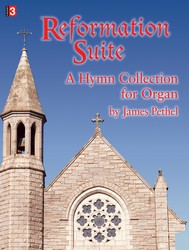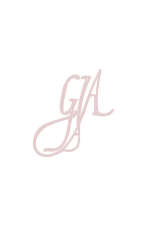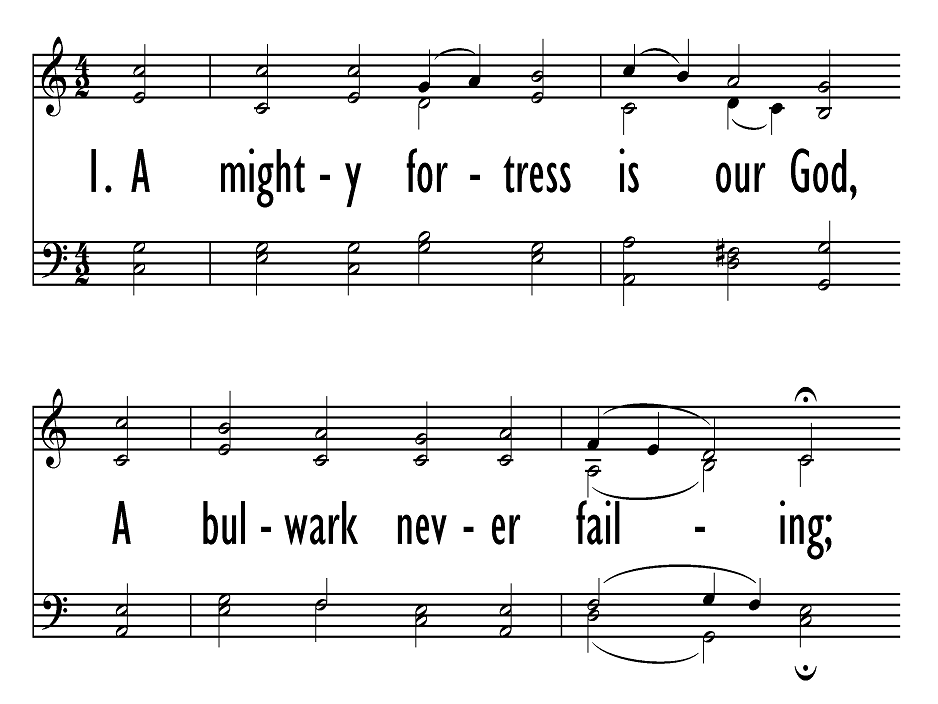Scripture References:
all st. = Ps.46
st. 3 = 1 Pet. 5:8
See PHH 468 for a brief history of the original text and tune. This English translation of Luther's German text is by Frederick H. Hedge (b. Cambridge, MA, 1805; d. Cambridge, 1890); it was published in Furness's Gems of German Verse (1852) and in Hymns for the Church of Christ (1853), a hymnal edited by Hedge and Frederick Huntington. Hedge's translation, which closely follows Luther's words, is the one usually found in North American hymnals.
Hedge was a precocious child who read Latin and Greek classics at an early age. Between the ages of twelve and sixteen he was in Germany, where he studied German literature. Educated at Harvard University and Divinity School, he became a Unitarian minister in 1829. Hedge served congregations in Maine, Rhode Island, and Massachusetts, and taught church history at Harvard Divinity School (1857-1876) and German literature at Harvard University (1872-1884). A respected transcendentalist and a famous German scholar, he published the monumental Prose Writers of Germany 0848). His original hymns and translations were published in Hymns for the Church of Christ (1853), which he compiled with F. Dan Huntington. He is remembered primarily for his translation of Luther's famous hymn.
Stanzas 1-3 of the original text were inspired by Psalm 46; stanza 4 arose directly from Luther's persecution experience. The text expresses trust in God's protection amidst the battle that Christians wage against the devil. "Earthly powers" in stanza four undoubtedly referred to the Roman Catholic authorities of Luther's day, but modern Christians may identity other "powers" that oppose the rule of Christ. The closing line of the text provides much comfort: "God's truth abideth still; his kingdom is forever!"
Liturgical Use:
See PHH 468.
--Psalter Hymnal Handbook


 My Starred Hymns
My Starred Hymns










